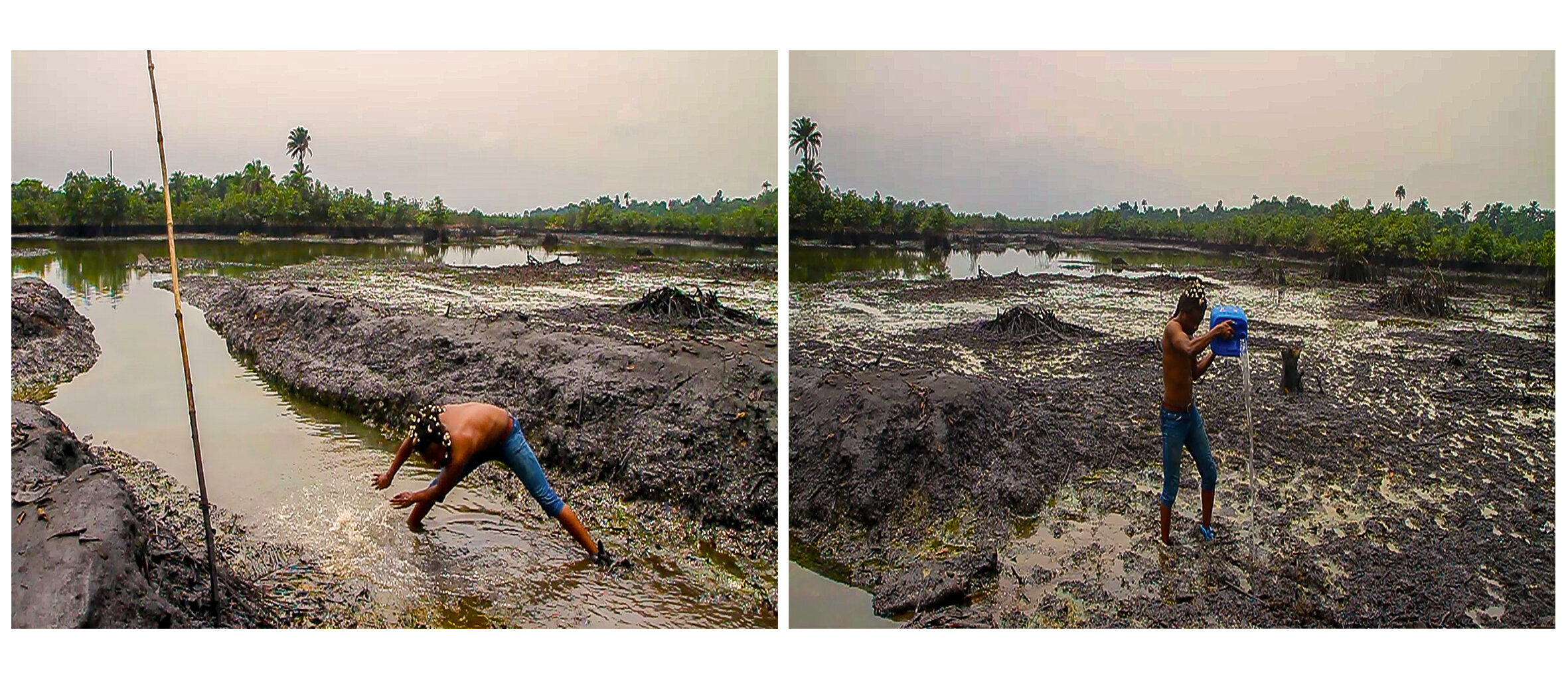Ogoni Cleanup, Performance, 2-channel video with audio, 3minutes 42 seconds
Ayọ̀ Akínwándé
Ogoni Cleanup
Ogoni, Rivers (Nigeria)
March 2020
Oil was discovered in Nigeria in 1956 at Oloibiri in the Niger Delta after half a century of exploration. The discovery was made by Shell-BP, at the time the sole concessionaire.
Between 1976 and 1991, over two million barrels of oil polluted Ogoniland – in the Niger Delta region of Nigeria – across 2,976 separate oil spills. While oil production has ceased, pipelines operated by Shell still traverse the land, creeks and waterways. Leakages – caused by corroded pipelines as well as bandits – mean that the area is still plagued by oil spills.
In 2011, the United Nations Environment Programme (UNEP) published a groundbreaking scientific study on the impacts of oil pollution in Ogoniland. In 2012, the Nigerian government established the Hydrocarbon Pollution Remediation Project (HYPREP) to help with the clean up of Ogoniland.
This performance, enacted at the site of one of the polluted waters in Ogoniland, critiques the clean up process, bringing to the fore the corruption that upholds it. Ritualistic in its design, the performance follows me as as I apathetically clean up the sea using my bare hands; pouring clean water from the gallon into the polluted grounds. This ritual mirrors the political approach deployed by the Government to solve an environmental disaster; one where offices are built, ribbons cut, and press conferences given on ‘progress.’
All this while the people of Ogoniland wait for the political theatrics to conclude, and the real clean to begin.
This performance was made possible with funding from the F9 Contemporary Arts Foundation.
